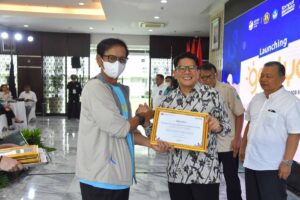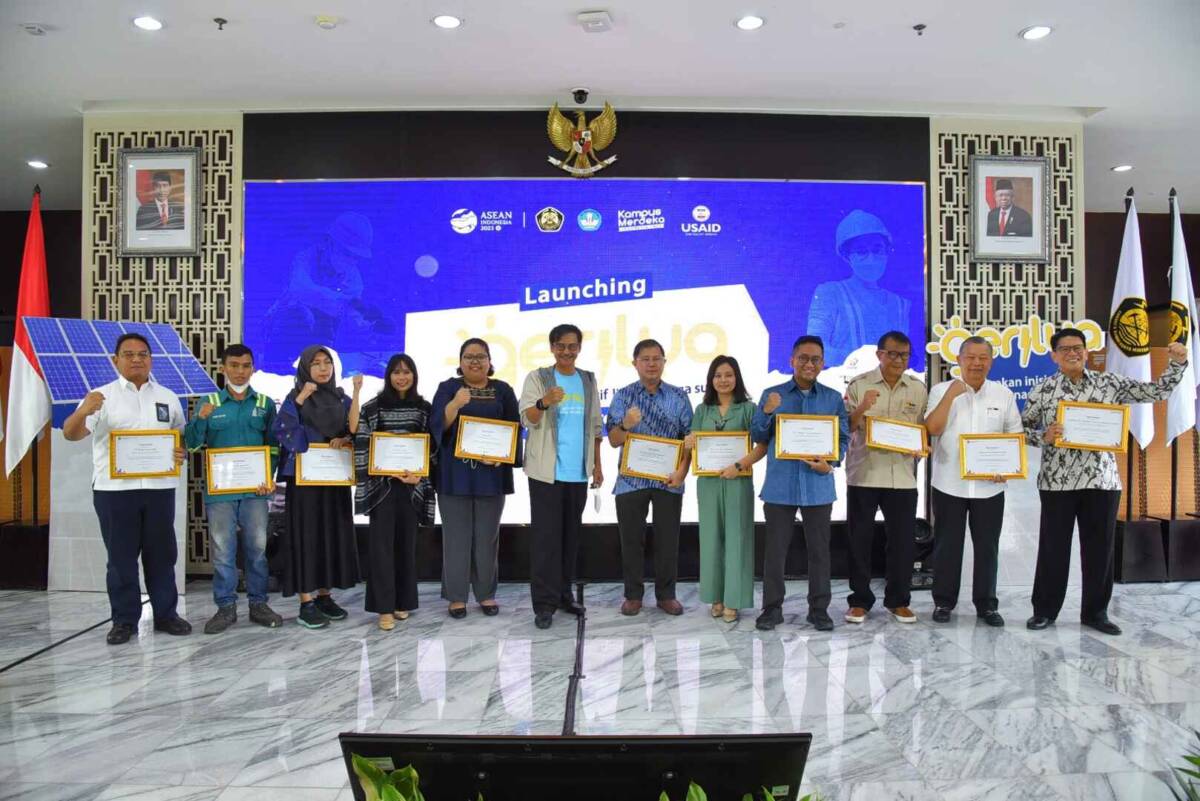Jakarta, 1 March 2023 – The energy transition requires the participation of all parties to make it happen. The education sector is predicted to be one of the strategic pillars to ensure that there are high quality experts and technicians who are ready to take part in the realm of renewable energy development.
Secretary General of the Ministry of Energy and Mineral Resources, Rida Mulyana reminded the importance of energy transition and the use of solar energy.
“Currently, our electricity is 86% coming from fossil energy, and one day it will run out. With the energy transition, we want the quality of national energy security to increase, no longer depending on fossil energy. We have renewable energy sources, and they are abundant. This means that if we want the transition from fossil to non-fossil, the sources already exist,” said Rida at the launch of the Gerilya program, Wednesday, March 1, 2023.
Rida also added that the second urgent reason is global pressure on climate change mitigation. Weather is hard to predict, even in a tropical country like Indonesia. That is, because of global warming, due to the increasing amount of GHG emissions which then makes the earth’s temperature rise, not only does sea level rise, but the weather is also unpredictable, and that is already happening.
The Ministry of Energy and Mineral Resources specifically formed GERILYA (Solar Electricity Initiative Movement) as part of the Certified Independent Study and Internship Program (MSIB) as a result of the collaboration between the Ministry of Energy and Mineral Resources and Merdeka Belajar Kampus Merdeka, Ministry of Education and Culture-Research and Technology
In the GERIYA program, students are placed in various institutions and companies engaged in various aspects of solar energy development. In his remarks on the same occasion, Director of Various Energy and EBT, Ministry of Energy and Mineral Resources, Andriyah Feby Misna stated that energy transition efforts in Indonesia need to be balanced with the availability of competent and qualified human resources.
“For this reason, the Gerilya program continues to improve itself by improving the solar energy curriculum and re-joining the fourth batch of MSIB,” explained Feby.
The intended curriculum improvement includes, among other things, the background of the participants, which initially only came from STEM majors, but now students majoring in social and humanities can join them. The time for students to be involved in projects was also extended to four months and the briefing time was shortened to one month.
A total of 2,456 applicants from 280 universities throughout Indonesia were selected, with the result that 62 students from 34 universities were declared to have passed the GERILYA selection stage. Of the number of students who passed the selection stage, 24 people or 38% of them were women. This is a form of commitment to gender equality in the implementation of the MSIB Gerilya Batch 4 program.

The Institute for Essential Services Reform (IESR) has supported the Gerilya program since its first batch and provided a place for students to learn about policy changes related to solar energy development from the perspective of civil society through scientific studies. In batch 4, IESR will host four Gerilya students.

